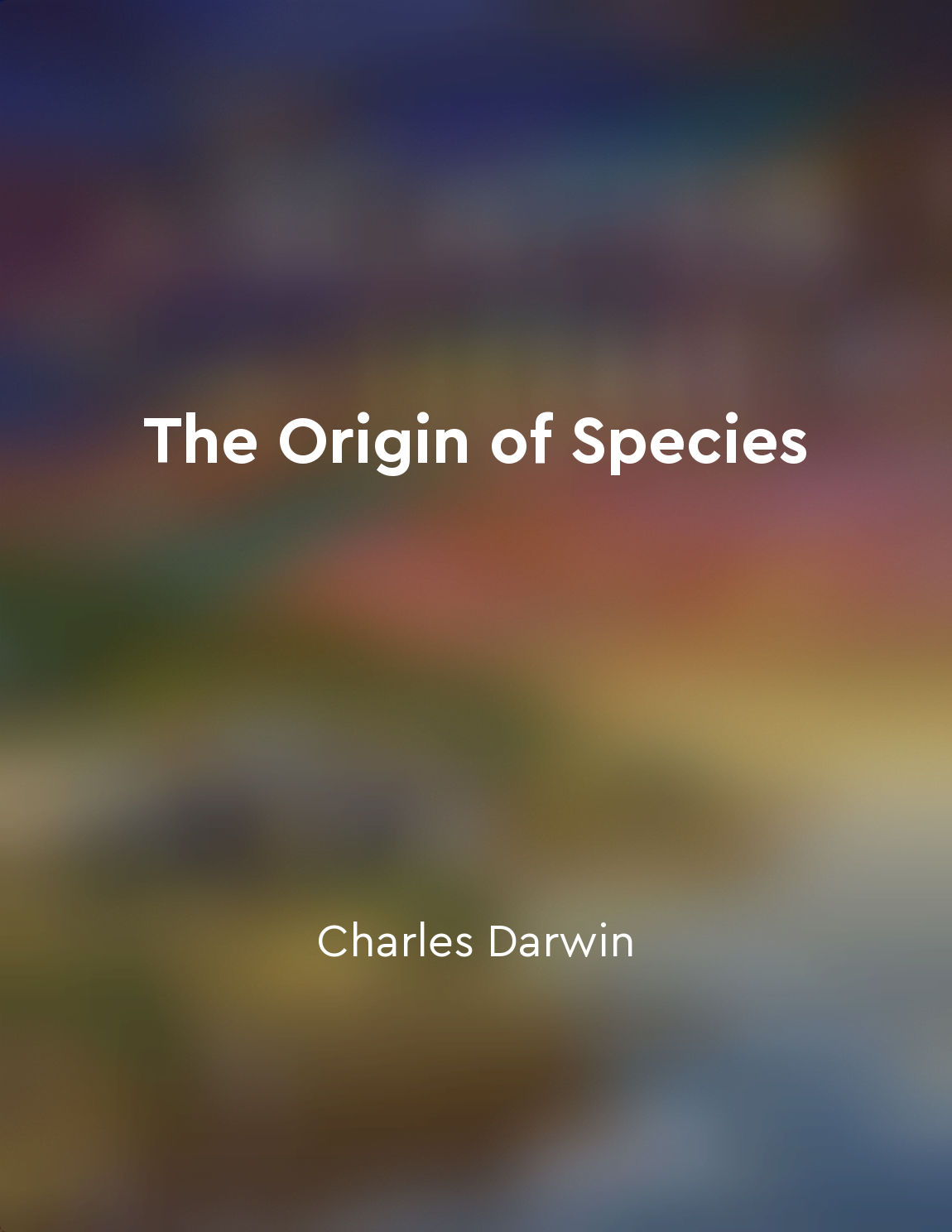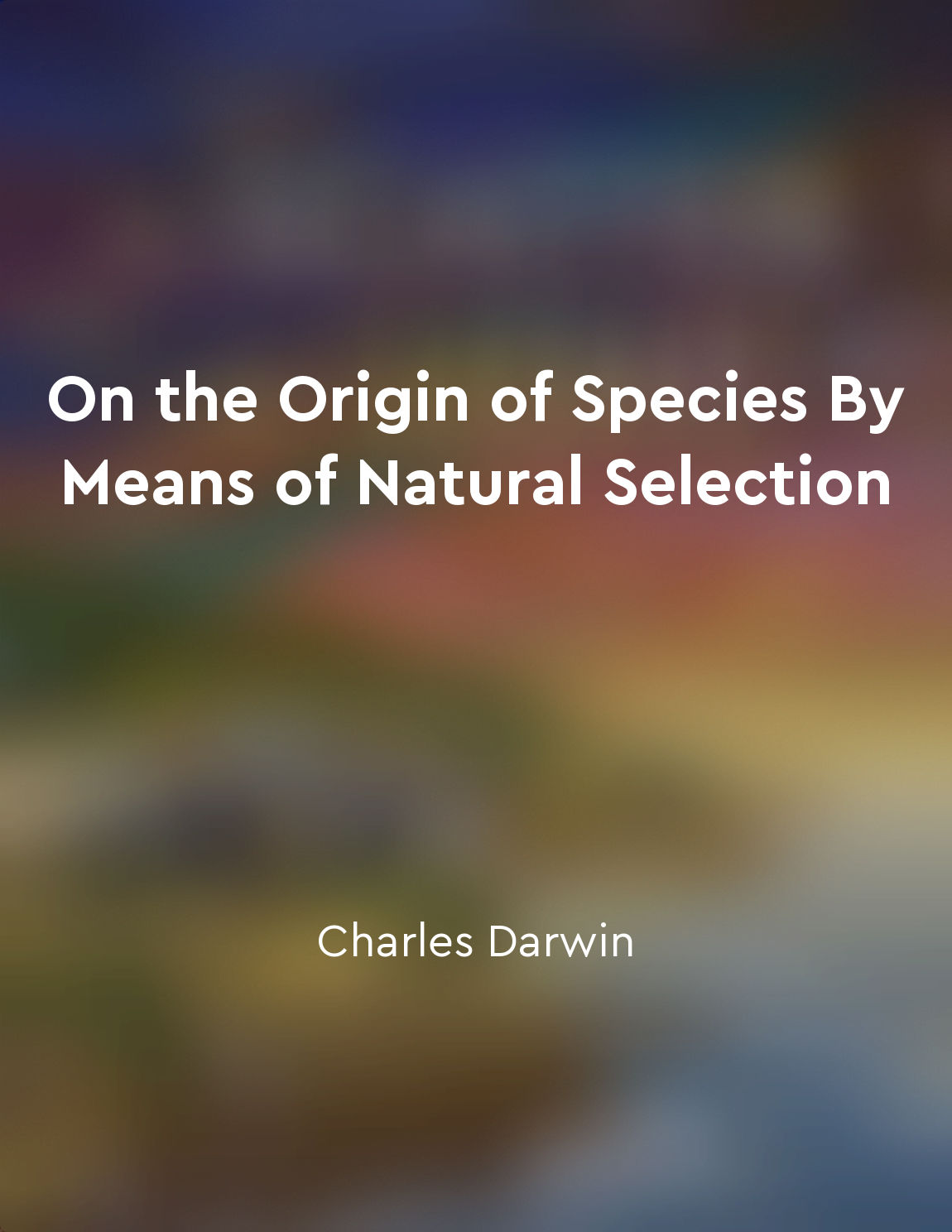Audio available in app
Reproduction is central to evolution from "summary" of Evolutionary Psychology by David M Buss
Reproduction is the core driving force behind evolution. This fundamental process is what allows genetic information to be passed down from one generation to the next, shaping the characteristics of future individuals. In essence, reproduction is the mechanism through which traits that enhance survival and reproduction are favored and perpetuated in a population over time. Evolutionary psychologists study how the processes of natural and sexual selection shape our behavior, thoughts, and emotions. Natural selection operates on traits that increase an individual's chances of survival and reproduction, while sexual selection focuses on traits that enhance an individual's success in attracting mates. Both forms of selection are essential for understanding the evolutionary roots of human behavior. Reproduction is central to evolution because it is through this process that genetic variation is generated. Variation is crucial for natural selection to operate, as it provides the raw material for evolutionary change. Without genetic diversity, populations would not be able to adapt to changing environments, making them more vulnerable to extinction. Therefore, reproduction is not only about producing offspring but also about creating the potential for evolutionary innovation. Furthermore, reproduction is not just about the quantity of offspring produced but also about their quality. Parents invest time, energy, and resources into their offspring to increase their chances of survival and reproduction. This parental investment varies across species and is influenced by factors such as mating strategies, ecological conditions, and social dynamics. Understanding the trade-offs involved in parental investment is essential for comprehending the evolution of mating and parenting behaviors.- Reproduction is central to evolution because it is the mechanism through which genetic information is transmitted, traits are selected, and populations adapt to changing environments. By studying the ways in which reproduction influences behavior and psychology, evolutionary psychologists can gain insights into the underlying mechanisms that shape human nature.
Similar Posts
Individual behavior is shaped by both nature and nurture
Human behavior is a complex interplay between genetics and environment. Our genes, inherited from our parents, provide us with ...
Symbiotic relationships can benefit both partners
In the game of life, alliances are crucial. Organisms have evolved to form partnerships with others in order to increase their ...
Protein synthesis occurs in the ribosomes
The process of protein synthesis takes place in the ribosomes, in the cells of living organisms. Ribosomes are the cellular str...
Newton formulated the laws of motion and gravity
In the seventeenth century, the English physicist Isaac Newton made a groundbreaking contribution to the field of physics by fo...
Our evolutionary past shapes our decisionmaking processes in modern society
The decisions we make in modern society are not made in a vacuum. Our evolutionary past plays a crucial role in shaping the pro...
Darwin examines the evolution of humans
In the Descent of Man, Darwin posits that humans have evolved from a common ancestor with other primates. He delves into the in...

Diversity results from divergence over time
The gradual process of natural selection leads to the divergence of species over time. As individuals within a species face dif...
Women are underrepresented in certain fields due to societal gender norms
In many societies, there are established gender norms that dictate the roles and behaviors that are considered appropriate for ...
Human instincts have both biological and cultural components
The idea that human instincts have both biological and cultural components helps us understand how our behavior is shaped by a ...

Vestigial organs as remnants of evolution
In the process of natural selection, organisms gradually evolve over time to better suit their environment. As a result, certai...

